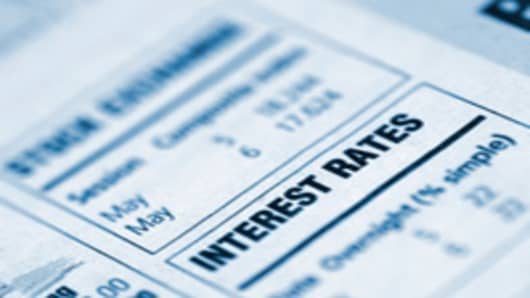It was floating around as a less-than-politically-enticing possibility for a while, and then the president's deficit commission gave it legs. They proposed taking a hack saw to the mortgage interest deduction, and slimming it down to size.
Now, as we watch the lame duck Congress hash and re-has old issues for the next few weeks, we know a far more subsidy-wary set of lawmakers are packing their camp trunks for Capitol Hill.
Home buyer tax credits and mortgage bailouts included, the mortgage-interest deduction is the biggest ongoing boon to the housing market and one of the costliest deductions in the U.S. tax code. It will slice an estimated $131 billion out of tax revenue in 2012.
The Wall Street Journal calls it the "sacred cow of the tax code," while the New York Times deems it "politically sacrosanct." That's because it's one of very few tax breaks upon which the middle-income earner can depend. While a cut in the tax break might have been slightly palatable during good times and a housing boom, it seems like a nail in the coffin to the housing market today.
I agree with the Mortgage Bankers Associationthat "limiting its use will have negative repercussions for consumers and home values up and down the housing chain," but does that mean it should forever exist? Does it necessarily mean it shouldn't be scaled back?
This is the constant conundrum. Housing subsidies do nothing but push borrowers to take on more debt. They inflate home prices artificially by giving buyers more spending power. Perhaps if subsidies were gone, home prices would settle to levels of actual affordability.
The mortgage-interest deduction is not a boon for the rich, since it's capped at a million dollars anyway, and some argue that it doesn't promote home ownership because other countries that don't have it do have similar ownership rates as the U.S.
"Proposals to minimize the deduction have failed because there aren't a whole lot of Americans who can look at the growing deficit and say,"
Still, proposals to minimize the deduction have failed because there aren't a whole lot of Americans who can look at the growing deficit and say, "Sure, I'll give up some of my own cash to shrink it a bit!" And their representatives in Congress know that.
With mortgage interest rates now at near-historic lows, and home prices falling to far better levels of affordability, would a cut in the mortgage-interest deduction really affect a potential buyer's ability to purchase a home? It shouldn't, because if need be they could just buy a slightly less expensive home. There are plenty of those around.
But in today's market everything is about fear and perception; the very perception that government is pulling the remaining bits of rug out from under the housing market will weigh far more heavily on a buyer's decision-making process than any real fiscal calculation weighing down their bank accounts.
Questions? Comments? RealtyCheck@cnbc.comAnd follow me on Twitter @Diana_Olick



